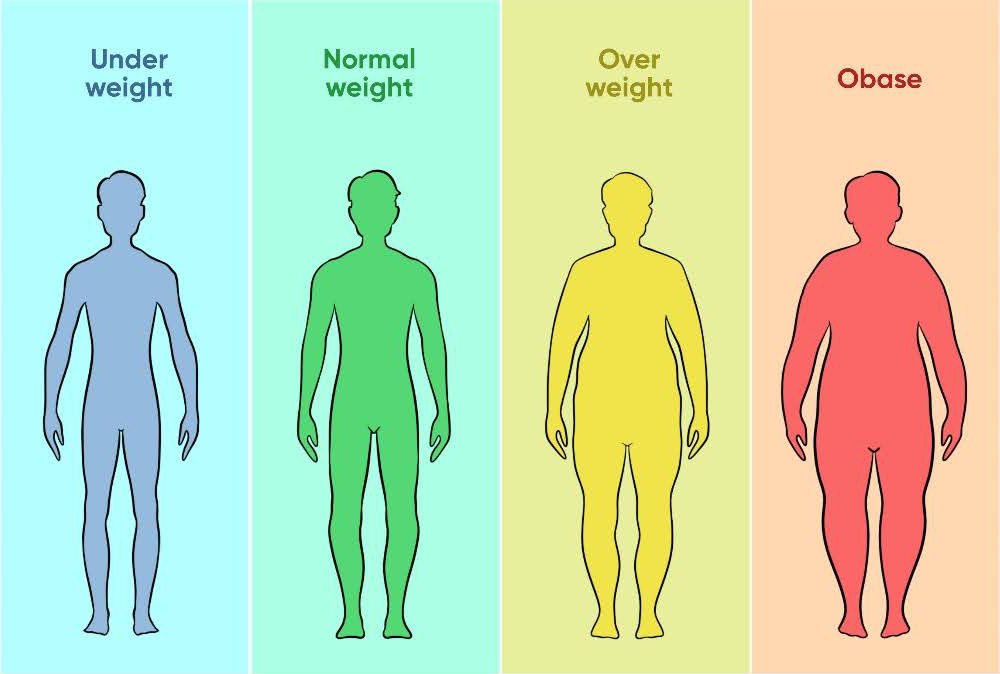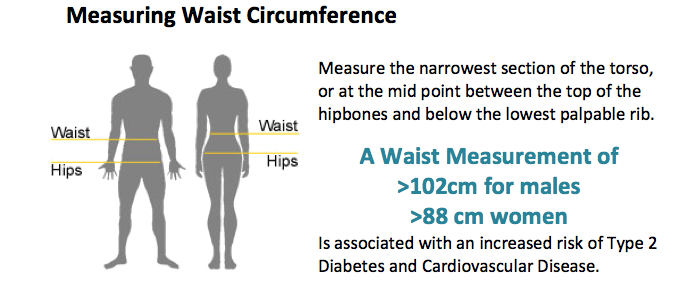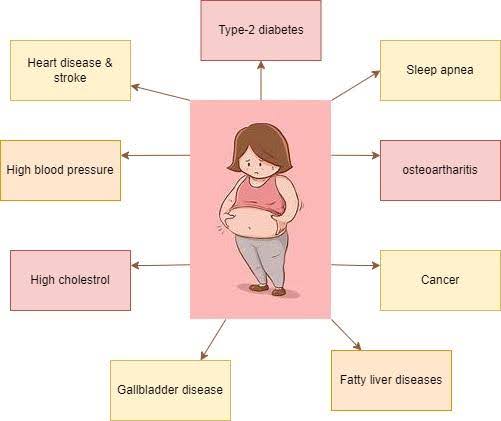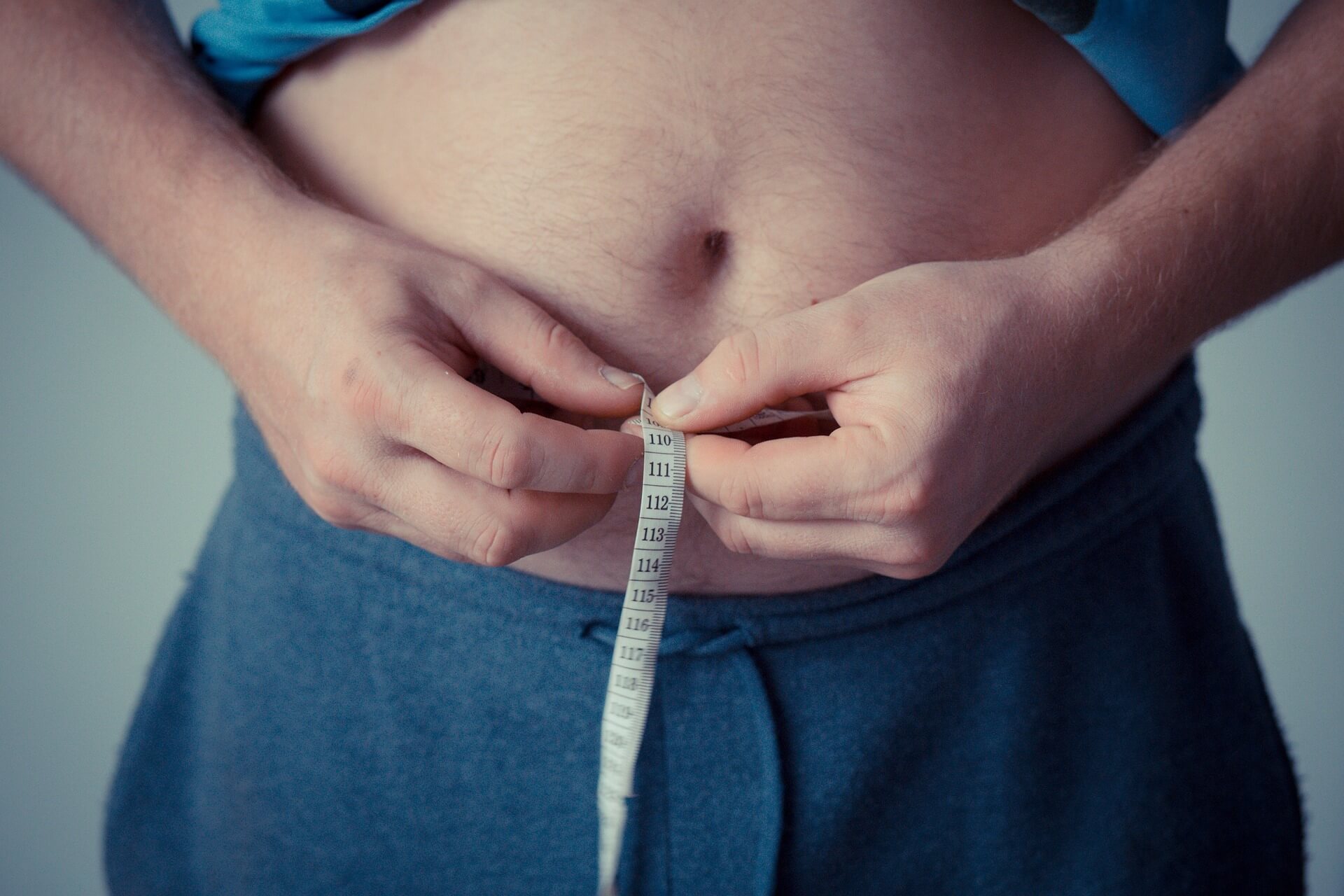What is obesity?
The root cause of obesity is excessive fat accumulation in the body.
This happens when we consume high amounts of energy-rich food and do not use up all that energy through physical activity.
Much of that extra energy will be stored as fat.
In 2016, nearly 33% of the adult population of the world was overweight or obese.
How can you know if you are obese?
There are several means of identifying obesity:
1. BMI (Body Mass Index)
The most commonly used tool to identify obesity.
Having a BMI greater than 23 is considered as ‘overweight’ and above 27.5 is considered as ‘obese’ in South Asian regions.

2. Waist circumference
This gives an idea about the distribution of fat in the body.
The waist circumference is the measurement of the narrowest part of the torso (measured around the abdomen at the level of the umbilicus in exhalation).

A healthy waist circumference is less than:
- 90 cm in men
- 80 cm in women
What causes obesity?
- Unhealthy dietary patterns
- Sedentary lifestyle with minimal physical activity
- Side effects of some medications
- Family history
- Hormonal imbalance
- Psychological stress
How does obesity affect your health?
Obesity is a major risk factor for many health conditions, some of which can be life-threatening.

How do we treat obesity?
The goal of managing obesity is to achieve a healthy weight and maintain it in the long run. We can do this by:
- Dietary modifications
Practicing healthier eating habits is the key to overcoming obesity. - Increased physical activity
At least 150 minutes per week of moderate-intensity physical exercise like cycling, swimming, dancing, or brisk walking. - Prescription of medications
This should be done in addition to diet and exercise; not instead of them. - Surgeries
Certain types of surgeries are available to help with weight loss by making changes to the digestive system.
How to arrange the diet to lose weight?
If our target is to reduce weight, we need to consume a lesser amount of energy (calories) in the form of food than what our body uses per day.
How to reduce the energy intake?
-
- Limit food with a high energy content:
- Starchy foods: rice, yams, manioc, potatoes, sweet potatoes, etc., flour-based foods (hoppers, string hoppers, pittu, etc.)
- Refined sugars: energy snacks, candy, soft or fizzy drinks, high-sugar tea/coffee, flavoured drinks.
- Foods with high-fat content: fried and baked foods, pre-packaged snacks (frozen pizza, pies, cookies, biscuits), fried rice, kottu, cooking oils and spreads, red meat (beef, pork, mutton), dairy products like full-cream milk, ghee, cheese
- Eat plenty of non-starchy vegetables and two to three servings of fruits per day.
- Consume healthy snacks:
- Whole grain cereals, salt-free popcorn
- Fresh fruits and vegetables
- Low-fat yogurt, cheese
- Arrange your plate with various foods in the right quantity.
- Limit food with a high energy content:
FAQs
How fast can I lose weight?
Losing weight too fast is also associated with some health consequences like nutritional deficiencies, and gallstones. Rapid weight loss may be more likely to put the weight back in the long run. Hence, steady gradual weight loss of around 2 kg per month is recommended.
How much should I exercise?
People with obesity need to do at least 150 minutes per week (30 minutes per day for 5 days a week) of moderate-intensity exercises such as brisk walking, cycling, dancing, or swimming to prevent further weight gain. But this needs to be gradually increased once fitness improves, to around 300 minutes per week to facilitate weight loss.
Are there medications that help to lose weight?
Yes, there are several groups of medicines that can be used for weight reduction. Weight loss medicines can be used when weight loss cannot be achieved or maintained only with dietary modifications and exercise. Sometimes these drugs may be considered when there are obesity-related complications. Weight loss medicines should only be taken under the supervision of a healthcare professional due to the adverse effects of these drugs.
Can I undergo surgery to get rid of my weight?
Certain types of surgeries are available to help weight loss by making changes to the digestive system. Surgical options are usually considered if BMI is above 35 or for serious complications of obesity.
Can medications replace physical activity and dietary modification as a method to lose weight?
No, weight loss medicines work best when combined with increased physical activity and dietary modifications. Additionally, to maintain a stable weight, medications should be combined with lifestyle changes.
Can obesity affect fertility?
Yes, obesity can reduce the fertility rate of both men and women.




 info@slcim.com
info@slcim.com